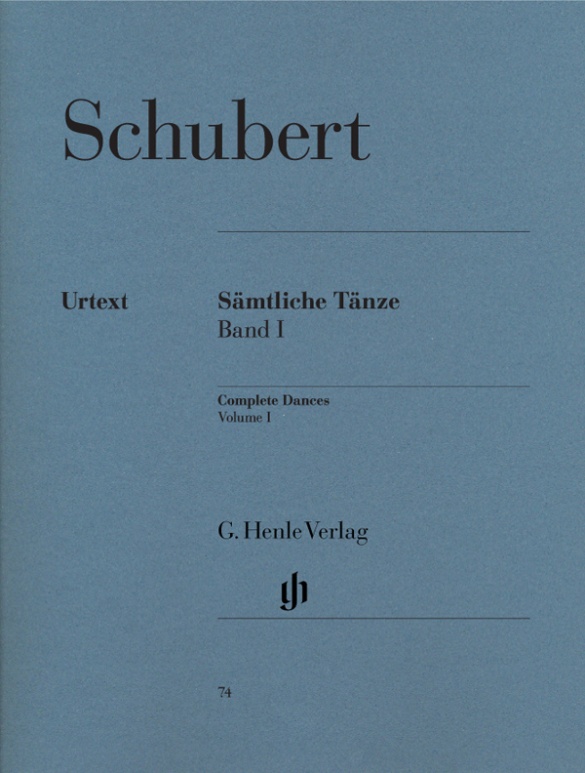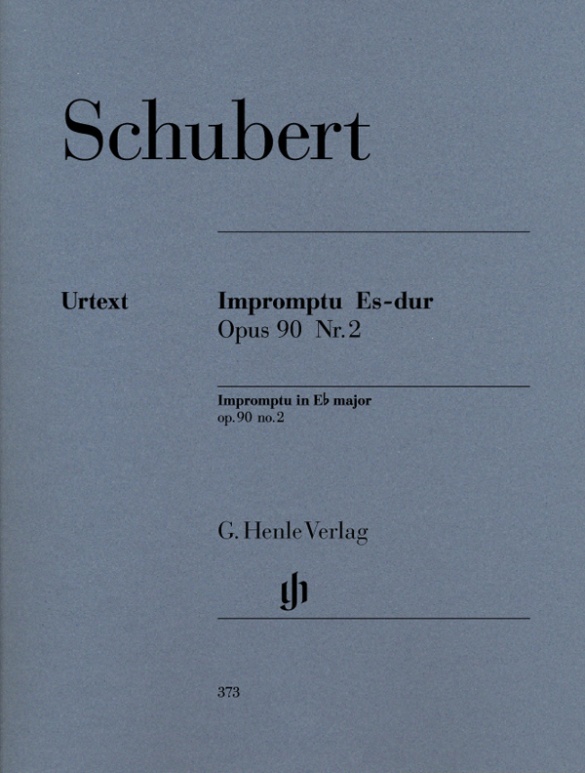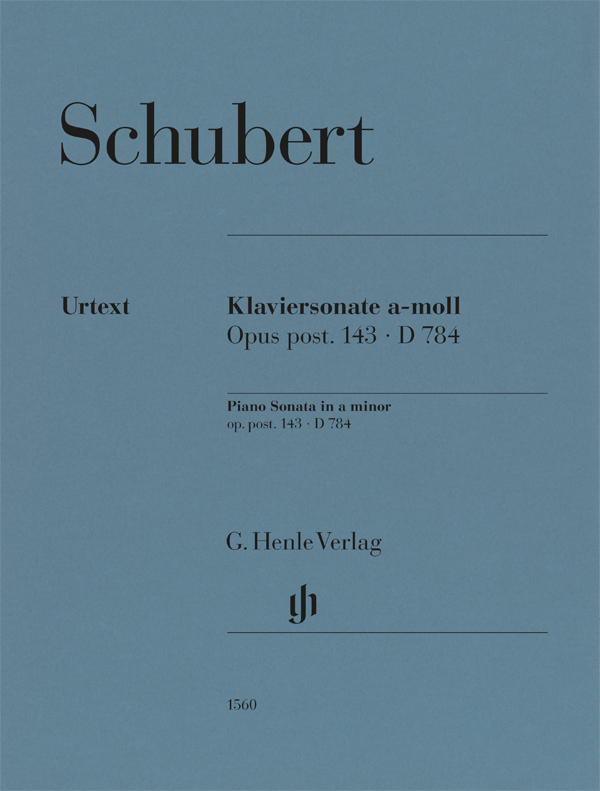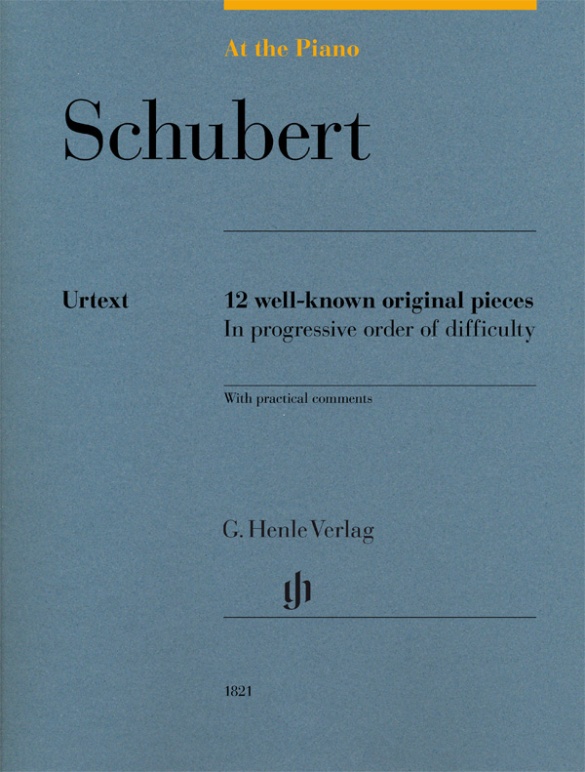

Franz Schubert
At the Piano - 12 well-known original pieces
Of the twelve composers in our series “At the piano”, Franz Schubert was undoubtedly the least at home at the piano – but nevertheless what masterpieces he left us for this instrument! There is hardly any pianist who is not immediately captivated by the cheerful yet melancholy atmosphere of Schubert’s impromptus and Moments musicaux. Even the simple pieces by Schubert at the beginning of this volume have surprising twists in store that afford them a profundity of their own. Nor are his dances mere “entertainment”. No matter how charming they may seem on the surface, there is always a wistful tone in his waltzes and ländler. This seems to reflect the gravely ill composer’s presentiment of his own death.
mws-henle.cms.title-works.headline
mws-henle.cms-product-detail.composer-headline
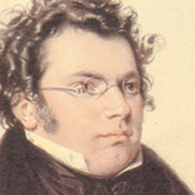
Franz Schubert
He is not only the inaugurator of the art song and its most important composer in the nineteenth century, but he also realized a compositional concept in his instrumental works that opposed Viennese Classicism. Underlying the “heavenly length” of his works is a configuration of time that does not function according to the principle of motivic development, but addresses the notion of lingering; modifications occur mostly not in continuous unfolding, but through sudden eruptions. His ornate songs contradict the ideal of simplicity in the Lied aesthetics of his time, and provide the basis for the art song of the nineteenth century, regarded as they were as exemplary by subsequent generations of composers; they are defined by complex harmonies, an integration of the idioms of instrumental music, semantic models, and a new relationship between text and music in which the poem as a whole is interpreted through the composition, rather than just through word painting. His immense oeuvre in spite of his brief life comprises 600 songs, including his two famous song cycles; seven complete and several unfinished symphonies (including the “Unfinished” in B minor); other orchestral works; numerous pieces of chamber music; fourteen complete and several unfinished piano sonatas as well as other piano pieces; dances for piano and four-hand works; six masses and other sacred compositions; numerous pieces for choir or vocal ensemble, especially for male voices. Although he also contributed to every genre of music theater and his friends predicted a career for him in opera, only two of his ten finished operas were performed during his lifetime, as was the incidental music to “Rosamunde.”
| 1797 | Born in Himmelpfortgrund near Vienna on January 31, the son of a teacher. First piano lessons from his brother Ignaz, violin lessons from his father at age eight. |
| from 1808 | Choirboy in the Imperial Chapel; attends the imperial and royal boys choir school (“Stadtkonvikt”), playing violin in its orchestra. Lessons from Antonio Salieri, who attempts to win over the boy enamored with Mozart, Haydn, and Beethoven to Italian opera. First surviving compositions. |
| 1811 | Composition of his first song, “Hagars Klage.” |
| 1813–14 | Attends the pedagogical secondary school, after which he teaches in his father’s school. |
| 1813/14 | Composition of the magical opera “Des Teufels Lustschloss” and the Symphony No. 1 in D major in classical form. |
| 1814 | Composition of the Mass in F Major, D 105. He writes songs, which he groups by their poets, e.g. Matthisson and Goethe, including “Gretchen am Spinnrade,” which marks the birth of the art song. |
| 1815 | Composition of the musical comedy “Claudine von Villa Bella” after Goethe and “Der vierjährige Posten.” Completion of the Symphony No. 2 in B-flat major and composition of the Symphony No. 3 in D major as well as the Masses in G major and No. 3 in D major; the song “Erlkönig,” among others. |
| 1816 | Composes 110 songs, the Symphonies No. 4 in C minor and No. 5 in B-flat major, and the Mass in C major. He leaves his parents’ home, suspends his position as teacher, and moves in with Schober. |
| 1817 | Sixty songs, including “Der Schiffer,” “Ganymed,” “An die Musik,” “Die Forelle,” “Gruppe aus dem Tartarus,” “Der Tod und das Mädchen.” Gradually his compositions are performed (his oeuvre already comprises around 500 works). Returns to his parental home. |
| 1818 | He teaches the daughters of Count Johann Karl Esterházy. Composition of four-hand piano pieces. |
| around 1819 | Composition of the Piano Quintet in A major (“Trout” Quintet). |
| 1820 | Premiere in Vienna of the melodrama “Die Zauberharfe” and the musical comedy “Die Zwillingsbrüder.” The song “Frühlingsglaube,” among others. |
| 1821 | First Schubertiade: a convivial musical- and literary evening meeting of Schubert’s circle of friends. Publication of the songs “Erlkönig” and “Gretchen am Spinnrade” as well as other Goethe songs and 36 dances. |
| 1821–22/54 | Composition/premiere of “Alfonso und Estrella,” one of the early through-composed German operas. |
| 1822 | Completion of the Mass in A-flat major; Symphony No. 7 in B minor (“Unfinished”); Wanderer Fantasy in C major for piano, which unites in one movement the four different characters of symphonic movements. |
| 1823 | Composition of the musical comedy “Die Verschworenen” (premiere in Frankfurt am Main in 1861), the heroic-Romantic opera “Fierrabras” (premiere in Karlsruhe in 1897), and the incidental music to “Rosamunde,” which is premiered in Vienna. Song cycle “Die schöne Müllerin,” songs “Auf dem Wasser zu singen,” “Lachen und Weinen,” among others; Piano Sonata in A minor, D 784. |
| 1824 | Once more teacher of the children of Count von Esterházy. String Quartet in D minor (“Death and the Maiden”). “Wandrers Nachtlied” (“Über allen Gipfeln ist Ruh”). The piano sonata takes on greater importance. |
| 1825 | Long holiday travels, including to Gmunden-Gastein, where he composes the Great Symphony in C major (No. 9 or No. 8), in which he considerably expands classical form (e.g. horn motto at the beginning, configuration of time). |
| 1827 | Song cycle “Winterreise” (contrasts dream sequences with reality); German Mass; four Impromptus for piano; Piano Trios in B-flat major, D 898, and E-flat major, D 929. |
| 1828 | Publication of the “Six Moments Musicaux” for piano. Composition of the last three piano sonatas in C minor, A major, and B-flat major (the latter with a tendency towards the esoteric), the sonata movement in A minor (“Lebensstürme”), the Mass in E-flat major. “Thirteen Songs after Poems by Rellstab and Heine” (posthumous “Schwanengesang,” “Swan Song”). In March, a concert dedicated to only his own music. Death in Vienna on November 19. |
mws-henle.cms-product-detail.author-headline
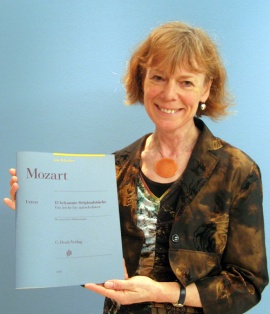
Sylvia Hewig-Tröscher (mws-henle.person.role.HERAUSGEBE, mws-henle.person.role.FINGERSATZ)
Sylvia Hewig-Tröscher studied piano at the Hochschule für Musik in Munich under Erik Then-Bergh and Hermann Reutter, as well as under Louis Hiltbrand at the Conservatoire de Musique in Geneva. 1977 she finished the „ Classe de Virtuosité“ in Geneva with the Premier Prix avec distinction and received the Henry Broliet prize as well as being awarded the GEDOK prize. Also organ studies under Lionel Rogg finishing with the „Diplome d’Orgue“. Masterclasses with George Halmos, Klaus Schilde, Karl Seemann and Wilhelm Kempff, followed, as well as with the cembalo player Li StadelmannIn. 1977 the piano trio Orfeo was established.
Since then, as a solo pianist and chamber musician, her concert activities have led her to Germany, Switzerland, France, Italy, Austria, America, Egypt, India, Korea, and Japan. The list of recordings includes Bayerischer Rundfunk and Südwestfunk Freiburg, Baden-Baden, record and CD recordings of (among others) seldom played works of the classical and romantic periods with Musica Bavarica. Further CD recordings including modern music and first performances with Calig, Symicon, Bayer Records, Arts Magnamedia, and Sony, also co-production of the Bayreischer Rundfunk and Deutscher Musikrat.
Masterclasses in Villa Marteau, Marktoberdorf, Hammelburg, Brixen, Castelnuovo di Garfagnana and New York. Today Sylvia Hewig-Tröscher works as a professor of piano and vice president of the Hochschule für Musik and Theater Munich.
Product Safety Informations (GPSR)

G. Henle Verlag
Here you can find the information about the manufacturer of the product.G. Henle Verlag e.K.
Forstenrieder Allee 122
81476 München
Germany
info@henle.de
www.henle.com
At The Piano is an excellent series for students and teachers. Those who fancy learning a major composer’s ‘piano favourites’ will really enjoy working their way through each book. G. Henle have combined a scrupulous ‘pure’ score with plenty of valuable information, offering a fascinating glimpse into the history and style of each composer.
Melanie Spanswick, 2018推荐
autogenerated_cross_selling
本书目其他版本
本书目其他版本


